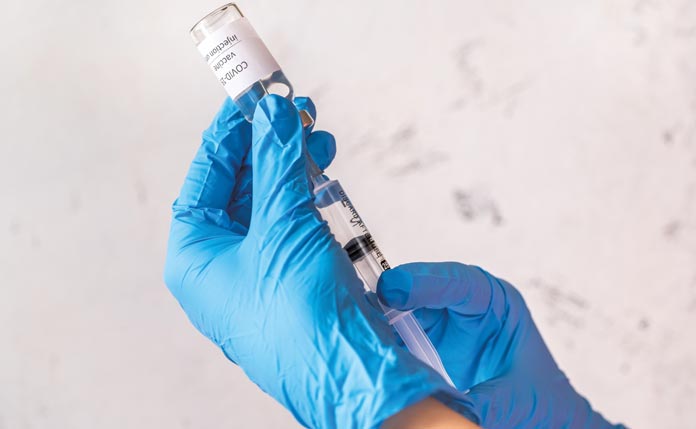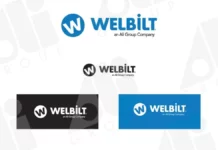
While the Centers for Disease Control and Prevention (CDC) suggests that workers in the food service industry be included in round 1c of COVID-19 vaccine distribution, states ultimately regulate distribution.
For example, in New York, restaurant workers have recently been added to phase 1b of vaccination rollout, expediting their eligibility. However, as the COVID-19 vaccine becomes more widely available and distribution progresses, employers need to assess and/or develop a vaccination policy and plan.
Developing a COVID-19 Vaccine Program
Successful vaccination programs combine marketing with education to reduce fears and misconceptions. As the vaccines become more accessible, employers have a responsibility to address employee concerns.
Organizations can compare COVID-19 vaccination program development to mandated influenza vaccination programs for healthcare workers. Since 1984, the CDC has recommended that all healthcare workers be immunized against influenza. Vaccination rates of at least 80% are needed to prevent infection. While many cases of serious illness and death from COVID-19 occur primarily in older, high-risk individuals, people of any age who have underlying medical conditions are at increased risk.
To improve vaccination rates among employees, it is recommended that employers implement the following strategies:
- Launch an ongoing education campaign.
- Remove cost barriers.
- Provide the vaccine at convenient times and places.
- Make the vaccination available outside of typical business hours.
- Use vaccination clinics.
- Ensure access to vaccinations for all work shifts.
- Have company leaders be among the first to be vaccinated.
- Require signed declinations from workers who have non-medical reasons for declining the vaccine.
- Do not ask prohibited medical questions and have HR work with those who have medical or religious reasons for declining the vaccine.
Leadership’s support of vaccination programs and campaigns is extremely important to program success. A company’s leaders can ensure policies are in place, reduce or eliminate barriers to access and implement a culture in which the vaccination is an expected safety and risk mitigation measure.
Despite national and international medical recommendations for vaccinating workers, voluntary efforts to vaccinate in healthcare settings have historically been poor. For this reason, some employers may consider requiring their workers to be vaccinated, so long as the requirement accounts for employee protections under federal law.
Vaccines & Employment Law
Employer-driven vaccination programs require a thorough understanding of employment law, compliance, employee well-being and education. As a general rule, employers, under certain circumstances, may require employees to receive the COVID-19 vaccine. However, there are specific and certain limitations.
Primarily, employer vaccination policies are subject to two significant federal laws, The Americans with Disabilities Act (ADA) and Title VII of the Civil Rights act of 1964 – Religious Discrimination, among other legal considerations, such as protections for pregnant employees (with respect to the Pregnancy Discrimination Act or PDA) and Health Insurance Portability Accountability Act (HIPAA) requirements.
Building a compliant vaccination program is complex and filled with a myriad of legal risks and pitfalls. It is strongly recommended that employers work with outside counsel when building an employer vaccination program.
Workers’ Compensation
What happens if an employee experiences a medical complication from the vaccine that was either offered or required by the employer? Under certain circumstances, an employee’s medical complications associated with the vaccine may be deemed compensable and covered by the employer’s workers’ compensation (WC) insurance.
Generally, an injury may be compensable when a claimant can demonstrate that the injury can be attributed to some event or circumstances connected with work. An employee who receives the vaccine while at work may be able to demonstrate that the medical complications were “in the course of employment in the sense of continuity of time, space, and circumstances.” Employers should check with their insurance advisor regarding their WC coverage to better understand the compensability of medical complications associated with the COVID-19 vaccine in their state.
Since the very start of the pandemic, leading global insurance brokerage, HUB International, has continued to put out timely content to educate our clients on the rapidly evolving COVID-19 information, whether it be safety best practices or vaccine considerations for employers. Please visit HUB’s COVID-19 Resource Center for a plethora of resources to help you prepare and protect your business and employees: http://www.hubinternational.com/coronavirus
On-Demand HUB Webinars:
• “COVID-19 Vaccine in the Workplace: Employment Law, Benefits & Well-Being”: https://bit.ly/39ICaEg
• “Implementing an Employee Vaccination Program: Cost, Access, and Communication”: https://bit.ly/3oGPbSZ























